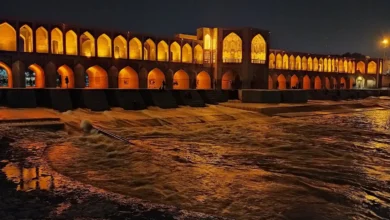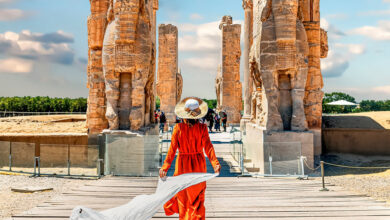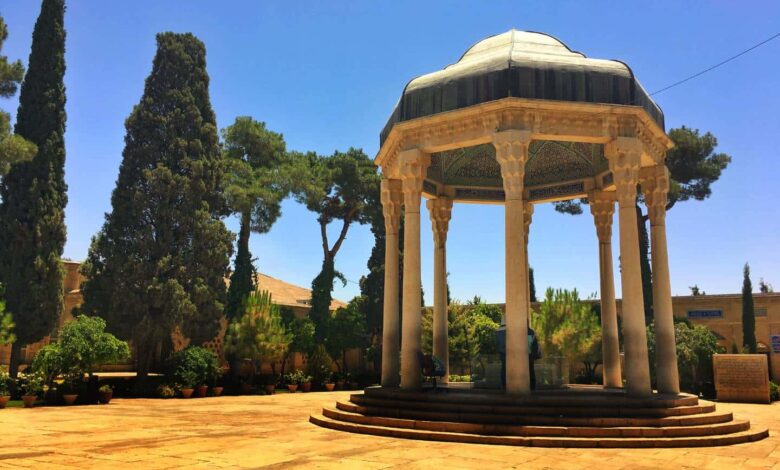
Hafiz, also known as Hafez, was a 14th century Persian poet whose work is renowned for its beauty and spiritual depth. His poems are known for their themes of love, devotion, and the search for spiritual truth.
Many of Hafiz’s poems express the longing and desire for union with the divine, often using the imagery of love between a lover and a beloved to symbolize the relationship between the individual soul and God. He often wrote about the longing for divine love and the journey of the soul to reach the ultimate union with God.
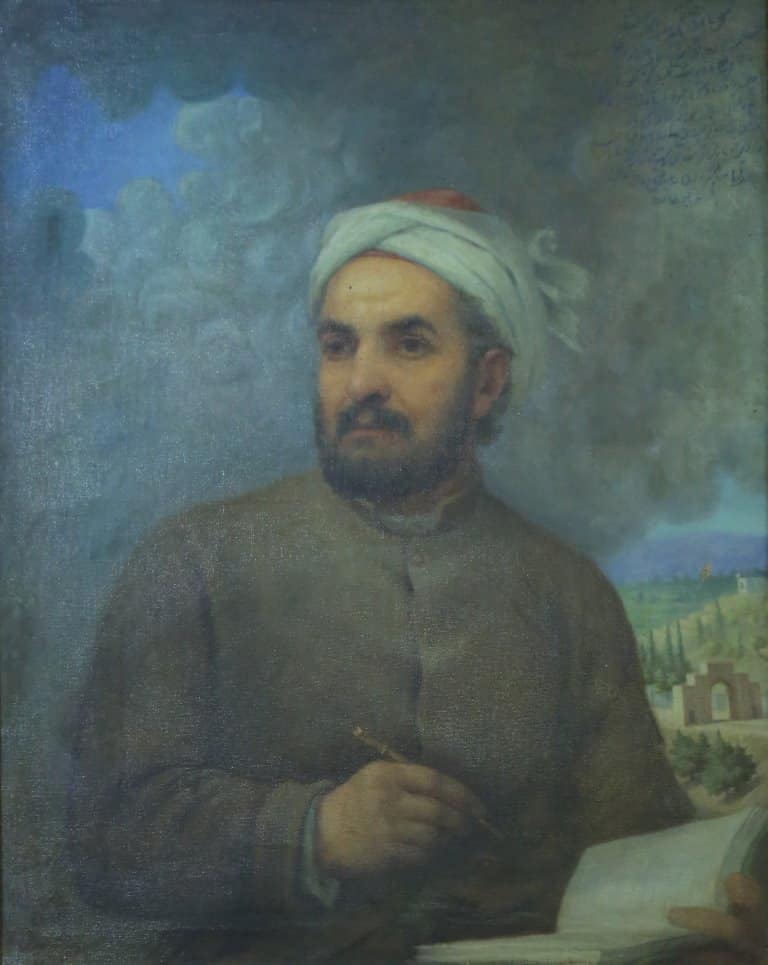
In addition to themes of spiritual devotion and longing, Hafiz’s poetry also reflects on the social and political issues of his time. He wrote about the injustices and corruption of the ruling class, as well as the struggles of everyday people.
Hafiz’s poetry is also known for its use of vivid imagery and metaphors, as well as its rich and nuanced language. His poetry is considered some of the most beautiful and enduring works of Persian literature, and his work continues to be studied and celebrated today.
Contents
Who was Hafiz?
Hafiz, also spelled as Hafez, whose full name was Khwāja Shams-ud-Dīn Muḥammad Ḥāfeẓ-e Shīrāzī, was a renowned Persian poet born around 1315 and died in 1390. Hafiz is one of the most celebrated poets in the Persian literary tradition, often compared to other greats such as Rumi and Saadi.
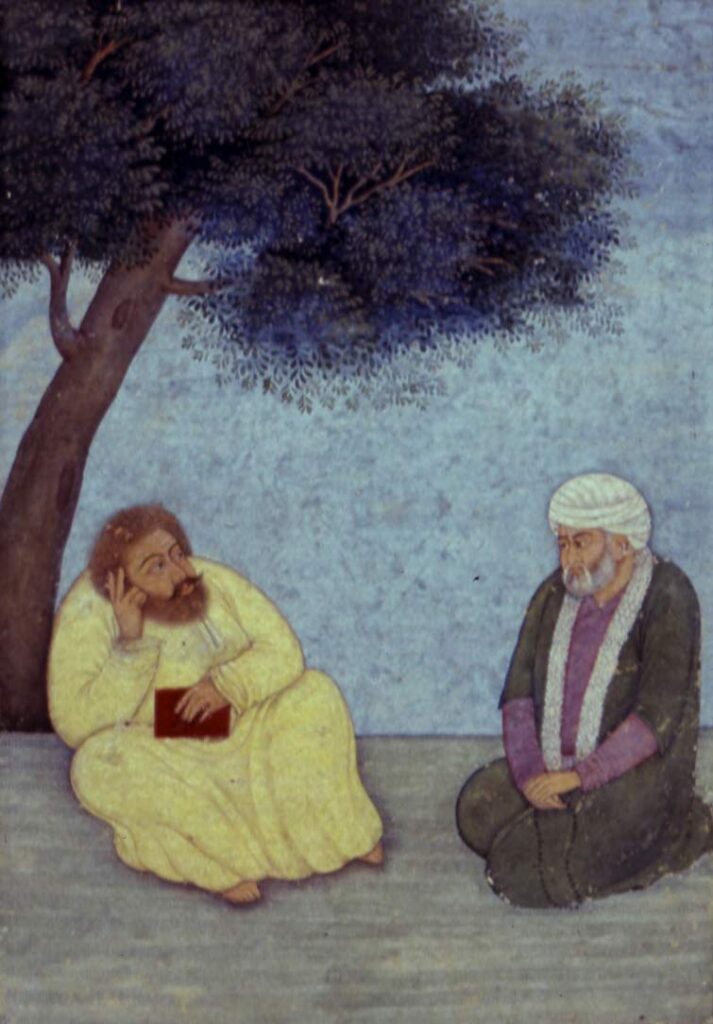
He was born and lived in the city of Shiraz, which is in present-day Iran. While not much is definitively known about his life due to the passage of time and the intertwining of myth and fact, he is often depicted as a scholar who had memorized the Quran at an early age (hence the name “Hafiz,” which means “memorizer” or “guardian”).
Hafiz’s primary poetic form was the ghazal, a short lyric poem that celebrates beauty, love, and often wine, but with deeper undertones of spiritualism and mysticism. His poetry is characterized by its deep spirituality, profound understanding of human nature, and keen insights into the mystical dimensions of love.
Historical Context of His Time
In the sprawling tapestry of history, few periods stand as starkly as the epoch that followed the Mongol invasions. This was a time of profound transformation for the Middle East, one that would herald the decline of one world power and the rise of local dynasties. Hafiz, a jewel of Persian literature, was born into this tumultuous age, his verses a testament to the resilience and revival of a culture amidst chaos.
Approximately a century had passed since the ferocious Mongol cavalry stormed across the plains and deserts of the Middle East. The remnants of their dominion, the Mongol Ilkhanate, had by then embraced Islam. Yet, the shadows of their reign, characterized by both destruction and synthesis, lingered palpably in the air. Hafiz’s world was a tapestry woven from the threads of this Mongol legacy.

While the Ilkhanate was waning, other local powers like the Muzaffarids began their ascent. They took over many territories, including Shiraz, the beloved hometown of Hafiz. Amidst this political chess game of rising and falling dynasties, one might expect cultural stagnation. Paradoxically, the opposite occurred. A cultural renaissance blossomed, and at its heart was the rejuvenation of the Persian language and literary tradition. If the Mongol invasions were a storm, then the subsequent era was the rainbow that emerged from the aftermath, and Hafiz, with his lyrical poetry, was undoubtedly one of its most vibrant colors.
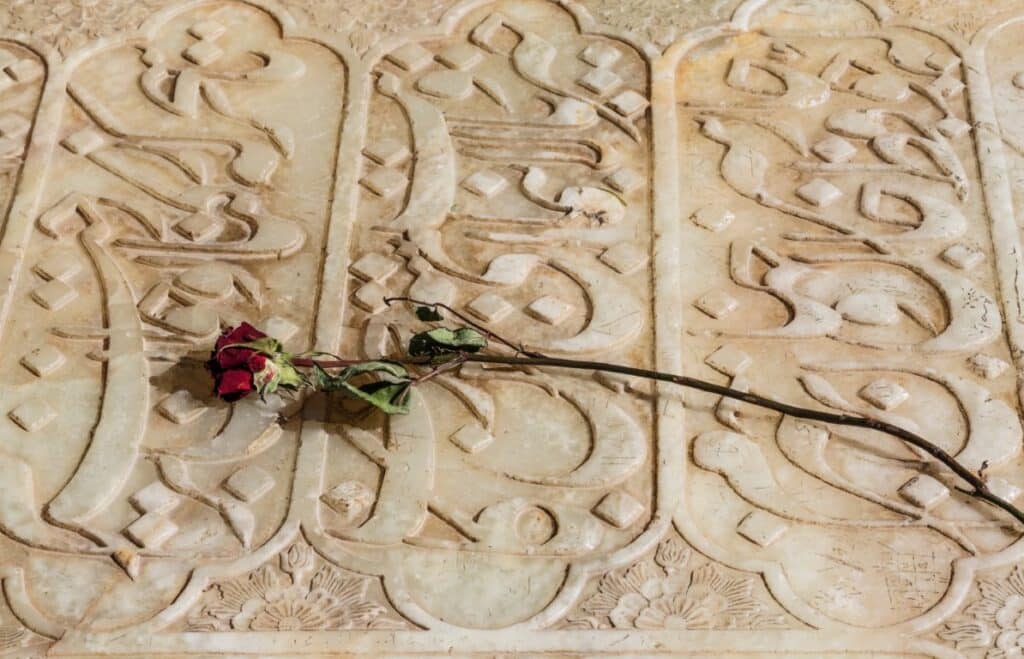
Sufism, the mystical dimension of Islam
Integral to the zeitgeist of this period was Sufism, the mystical dimension of Islam. Beyond rituals and dogma, Sufism sought a personal communion with the Divine, a path illuminated by love and introspection. Hafiz, with his spiritual inclinations, was deeply influenced by this. His poems resonate with the melodies of Sufi thought, a chorus of yearning for a profound connection with the Divine.
Yet, this was no utopia. Hafiz’s quill was not just dipped in the ink of love but also in the sharpness of critique. He observed the orthodox interpretations of Islam, often rigid and dogmatic, clashing with the fluid, personal interpretations of Sufism. His verses are interspersed with criticisms of religious hypocrisy and the tensions between orthodoxy and Sufism, making his poetry not just an ode to love, but also a subtle commentary on the societal undercurrents of his times.
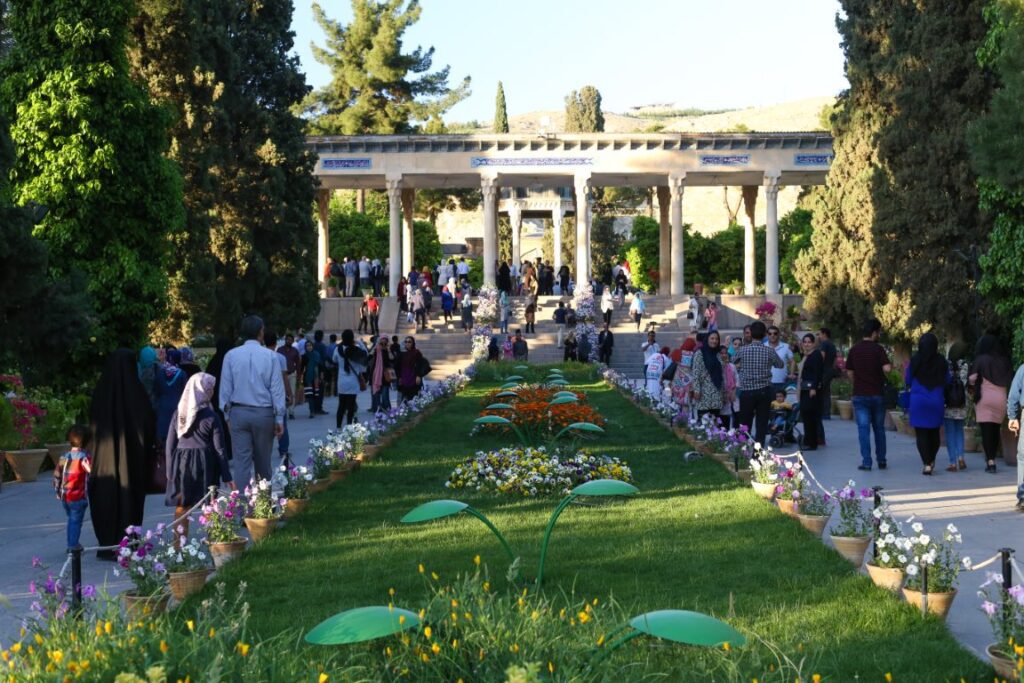
As if political and cultural upheavals weren’t enough, the era also faced the dark specter of the Black Death. Just as Europe grappled with the relentless march of the bubonic plague, so too did the Middle East. The grim reaper of disease added another layer to the complex mosaic of Hafiz’s world, reminding all of the fragility of life.
To understand Hafiz is to delve deep into the canvas of his era. Behind every line of his poetry lies a world of Mongol legacies, rising dynasties, cultural renaissance, spiritual quests, societal tensions, and the ever-present reminder of mortality. It is within this rich tapestry that Hafiz weaves his timeless verses, granting us a glimpse into a world both ancient and profoundly relevant.
Major Themes in Hafiz’s Poetry
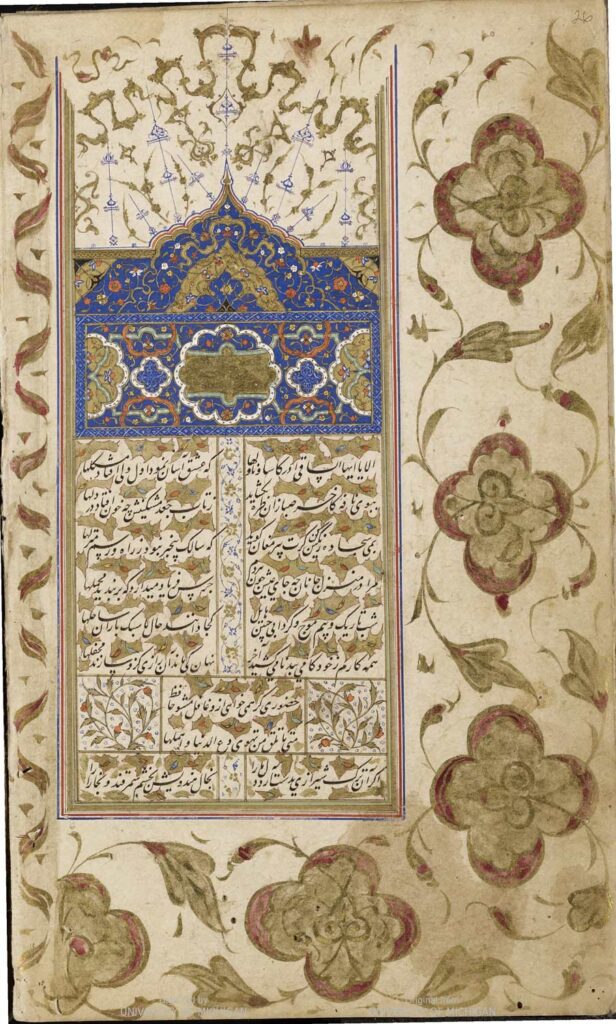
Hafiz’s poetry is a rich blend of sensuous beauty and profound spiritual insight. While his poems can be enjoyed for their lyrical quality and evocative imagery, delving deeper reveals a universe of wisdom and spiritual teachings. Here are some of the major themes that characterize his work:
Love and Divine Romance
At the heart of Hafiz’s poetry is love. This isn’t just romantic love between humans but a deeper, universal love that transcends earthly confines. Often, Hafiz uses the metaphor of earthly love to symbolize the soul’s yearning for the Divine.
Celebration of Life
Hafiz’s poems often resonate with the joy of living. He encourages embracing life’s pleasures, from the beauty of nature to the intoxication of wine. Yet, these poems carry deeper spiritual connotations, suggesting life’s transient nature and the deeper bliss of spiritual intoxication.


Sufism and the Quest for Spiritual Enlightenment
Deeply embedded in the Sufi tradition, Hafiz’s poetry emphasizes the inner journey towards spiritual enlightenment. His works touch on themes of self-annihilation, the ego’s transcendence, and union with the Divine.
Criticism of Religious Hypocrisy
Hafiz was never shy about critiquing religious dogma and the hypocrisy of those who outwardly practice religion but lack inner understanding. He often contrasted the genuine seeker’s sincerity with the ostentation of the religiously pretentious.
Unity and Oneness of Creation
A significant aspect of Hafiz’s spiritual philosophy is the idea of the unity and interconnectedness of all creation. His poems convey the essence of divine love permeating everything and highlight the interconnectedness of all beings.

The Tavern and Wine
The imagery of the tavern, wine, and the wine bearer is recurrent in Hafiz’s poetry. While at a surface level, it might appear as a celebration of earthly pleasures, it’s often an allegory for spiritual truths. The tavern represents a place of spiritual learning, the wine stands for divine love or knowledge, and the wine bearer is a guide or spiritual teacher.
Nature as a Reflection of the Divine
Many of Hafiz’s poems celebrate the beauty of nature, from the nightingale’s song to the beloved’s face. For Hafiz, nature is not just a source of aesthetic pleasure but a reflection of divine beauty and a means to connect with the Creator.
Transience and the Ephemeral Nature of Life:
Hafiz’s poems frequently touch on life’s fleeting nature. He encourages readers to cherish the moment, not because earthly pleasures are the ultimate goal, but as a reminder of the transient nature of existence and the eternal journey of the soul.
Hafiz’s Literary Style
Hafiz’s literary style is a confluence of beauty, emotion, and intellect. His ability to traverse between the worldly and the spiritual, using evocative imagery and layered meanings, has solidified his reputation as one of the most celebrated poets in the Persian literary tradition.
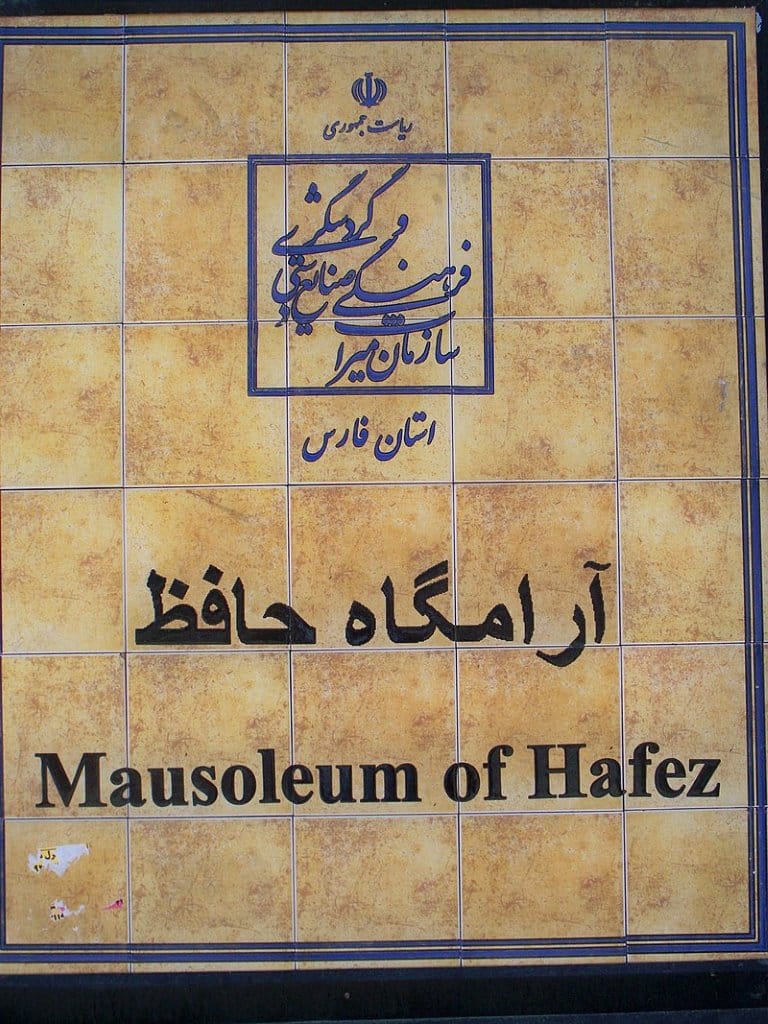
Hafiz predominantly wrote in the ghazal form, a poetic format known for its short, self-contained rhyming couplets where each line follows the same meter. Each couplet can be a standalone thought, making the ghazal a collection of related yet independent ideas.
Use of Symbols and Metaphors:
Hafiz’s poetry is replete with rich symbolism. Common symbols include the beloved (often symbolizing God), the tavern (a place of spiritual learning), wine (divine love or knowledge), and the nightingale (the soul pining for the divine). These symbols carry layers of meaning, enabling Hafiz to convey profound truths through seemingly mundane or worldly imagery.
One of the distinguishing features of Hafiz’s poetry is its melodious and rhythmic quality. The choice of words, the flow of the verses, and the recurrent metaphors create a harmonious, song-like quality.
Complex Imagery
Hafiz employs vivid and often juxtaposing imagery, which can be both sensuous and spiritual. By combining earthly delights with heavenly aspirations, he bridges the material and the ethereal in a unique tapestry of imagery.
Despite being deeply rooted in the cultural and religious milieu of medieval Persia, Hafiz’s themes are universal. He speaks of love, longing, joy, despair, and spiritual questing, making his poetry relatable across different cultures and eras.
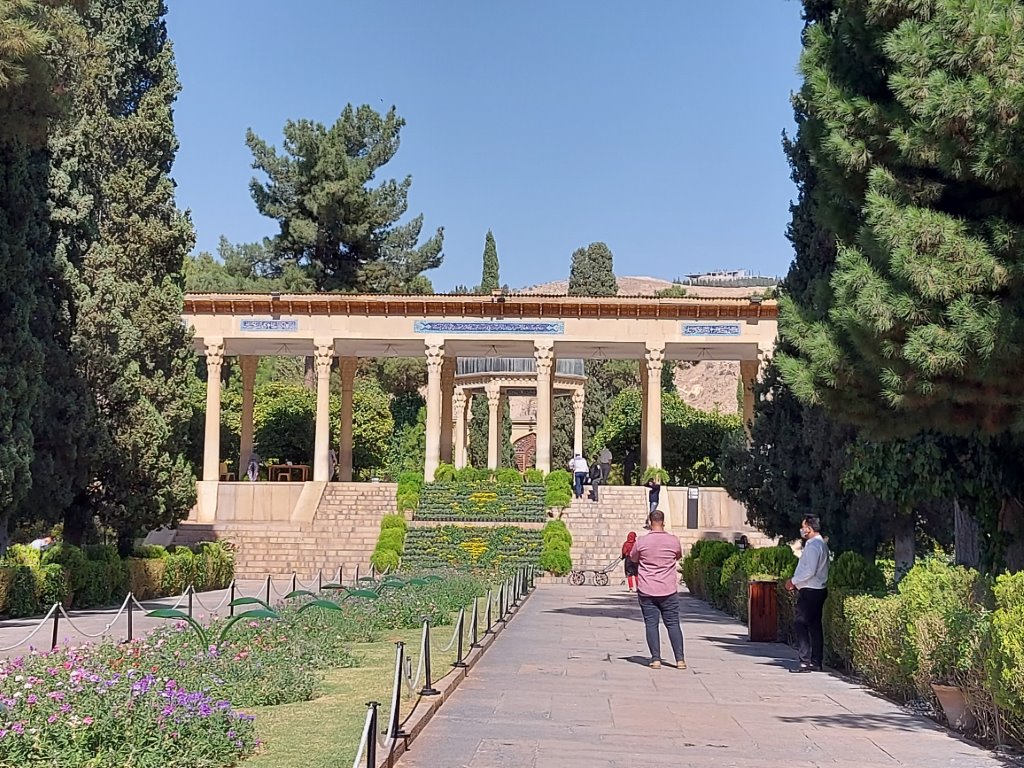
Hafiz often engaged with the works of other poets, responding to, building on, or even playfully challenging their ideas. This intertextual nature gives depth to his poetry and places it within the larger continuum of Persian poetic tradition.
His verses often carry a delightful ambiguity. A poem that at face value appears to celebrate earthly love and wine might, upon closer reading, reveal deeper spiritual meanings. This ambiguity allows for diverse interpretations and makes his work a subject of continuous exploration.
Beyond the mystical and romantic, Hafiz also touched upon social and religious issues of his time. His subtle critiques of religious orthodoxy, hypocrisy, and societal norms are carefully embedded within his verses, offering both a reflection of his times and timeless wisdom.
How Hafiz’s Poetry Shaped Persian Literature
Hafiz is considered one of the foremost masters of the ghazal. His nuanced use of the form—imbuing it with deep spiritual, philosophical, and emotional insights—raised the stature of the ghazal. While other poets like Rumi and Saadi also wrote ghazals, it was Hafiz who truly epitomized its potential.
Hafiz’s poetry has had a lasting and profound impact on Persian literature. His verses not only encapsulate the beauty and depth of the Persian language but also set a gold standard for literary craftsmanship, depth of thought, and expressive range. Through his work, Hafiz has left an indelible mark on the literary, cultural, and spiritual landscape of the Persian-speaking world.

As Hafiz often engaged with the works of other poets in his poetry, this created a culture of ‘poetic dialogue’ in Persian literature. Later poets often referenced, responded to, or were inspired by Hafiz’s verses, creating a tapestry of interconnected literary conversations.
The beauty and depth of Hafiz’s poetry made his works a standard for poetic craftsmanship. Generations of poets have studied his verses to hone their skills and draw inspiration.
Hafiz introduced and elaborated on complex spiritual and philosophical ideas in his poetry, making them accessible to a broader audience. This infusion of Sufi thought into mainstream literature ensured that subsequent Persian literature often carried a spiritual undertone.
Critique of Societal Norms:
Hafiz’s bold critiques of religious hypocrisy and societal conventions paved the way for later poets to incorporate social and political commentary into their works, ensuring that Persian poetry was not just an aesthetic endeavor but also a mirror to society.
The universal themes in Hafiz’s poetry, especially those related to love, longing, and spiritual questing, have ensured its continued relevance. This universality has made Hafiz a global figure, influencing not just Persian literature but also literary traditions in other languages.
Cultural and Literary Renaissance:
Living in the aftermath of the Mongol invasions, Hafiz played a pivotal role in the Persian cultural renaissance. His works symbolized the resilience and revival of Persian language, art, and identity during a period of political and social upheaval.
Famous Excerpts from Hafiz’s Poems
زلفآشفته و خِویکرده و خندانلب و مست
پیرهنچاک و غزلخوان و صُراحی در دست
Tousled-hair and sweating and smiling-lipped and drunk,
shirt-torn and singing songs and wine-flask in hand
دوش دیدم که ملایک در میخانه زدند
گل آدم بسرشتند و به پیمانه زدند
Last night I saw angels knocking on the door of a wine-house;
they kneaded Adam’s clay and struck it into/with a cup.
اگر آن ترک شیرازی به دست آرد دل ما را
به خال هندویش بخشم سمرقند و بخارا را
If that Shirazi Turk accepts my heart in their hand,
for their Indian mole I will give Samarkand and Bukhara.
سالها دل طلب جام جم از ما میکرد
وان چه خود داشت ز بیگانه تمنا میکرد
For years my heart was seeking Jamshid’s cup from us,
and what it had itself, it was requesting from a stranger.
نقدها را بود آیا که عیاری گیرند
تا همه صومعه داران پی کاری گیرند
Is it possible that they might make an assay of coins
so that all the cloister-dwellers will go and look for some work?
مزرع سبز فلک دیدم و داس مه نو
یادم از کشته خویش آمد و هنگام درو
I saw the green farmland of Heaven and the sickle of the new Moon;
I was reminded of what I myself had sown, and the time of harvest.
سینه مالامال درد است ای دریغا مرهمی
دل ز تنهایی به جان آمد خدا را همدمی
My breast is brimful of pain; alas, a remedy!
My heart is dying of loneliness, for God’s sake, (send) a companion!

